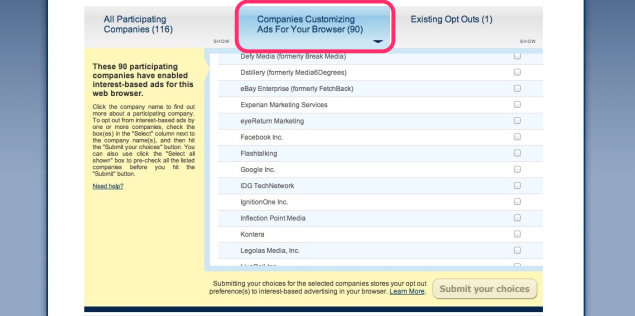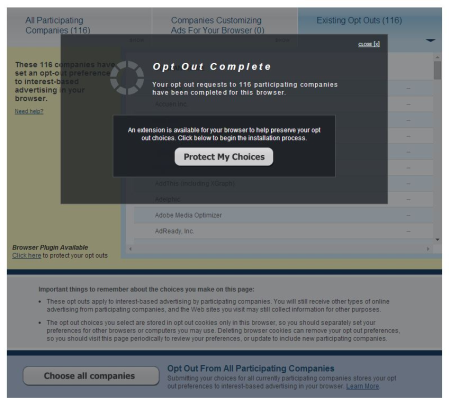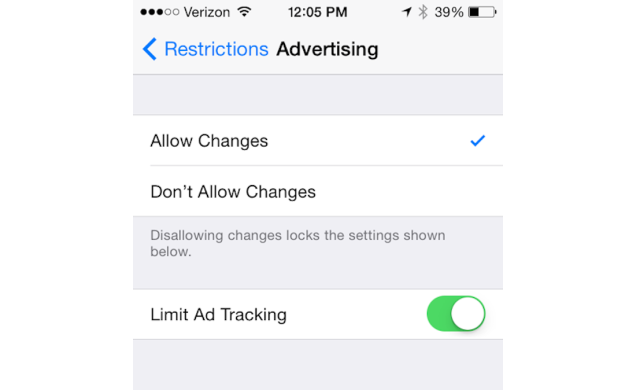Facebook Will Use All Your Browsing History To Target Ads. Here's How To Stop Them
Facebook has announced that it's going to start using app and website data from your browsing habits to provide more targeted ads. In other words, Facebook is getting ready to use your browsing history to benefit advertisers. Here's how to stop them.
Facebook is watching you — more closely than ever.
The social networking site on Thursday said it plans to start using information about its users’ Web browsing and app history when deciding which ads to show them.
Through its ubiquitous "like" buttons on publisher sites across the web, Facebook has long been able to watch the web surfing behavior of its 1.28 billion monthly users. Soon it will begin to use that information for ad targeting on Facebook.
Under the new system, a user researching prices for a flight to Miami — even outside of Facebook — might then see Facebook ads for restaurants or hotels in Miami Beach. The risk is that consumers will be turned off by Facebook’s tracking efforts, which could be viewed as an invasion of privacy, watchers warned.
In a move bound to stir up some controversy given the company's reach and scale, the social network will not be honouring the do-not-track setting on web browsers
A Facebook spokesman said that's "because currently there is no industry consensus." Social-media competitors Twitter and Pinterest do honor the setting. Google and Yahoo do not. Facebook will honor the settings to limit ad tracking on iOS and Android devices, however.
More control is coming to the ads you see, too: soon, Facebook will add a drop-down menu to ads which will allow you to remove a brand from your ad interests
Of course, just because you're getting some new (and highly necessary) controls over how Facebook shares your data doesn't mean it's going to stop collecting the data in the first place. So while we can at least somewhat limit how all of our salacious internet habits are being used, it doesn't mean the cache of data itself is going away.
 gizmodo.com
gizmodo.com
What's more, the new feature is opt-out, so in order to keep your browsing history away from prying third-party eyes. You'll need to actively head over to the Digital Advertising Alliance here and let them know you're not willing to share.
Unlike most Facebook-related privacy settings, you can't opt out from the site's settings page, though. In order to opt-out, you have to go through the Digital Advertising Alliance site. We walk you through the steps below.
NOTE: If you're using AdBlocker Plus or anything else that disables cookies, you're going to need to turn that off before you'll be able to opt out
Once on the site, you'll see this screen. Select the "Companies Customizing Ads for Your Browser" tab, and scroll down until you see Facebook.
And as long as you're here, feel free to scroll through and check off any other sites you'd like to stop tracking over your most private internet deeds. Once you've clicked to your heart's content, hit "Submit."
Now, considering how many of us also use the Facebook app, you're probably going to want to do the same for your mobile device(s)
For iOS users, you open settings and go to General>Restrictions>Advertising (under the "Privacy" section). The setting you are looking for is Limit Ad Tracking, flip it, and you're all set.
If you're using Android, go to Google Settings>Ads>Opt Out of Interest-Based Ads, and that's it—you're now free to browse in peace
NOTE: If you reset your mobile device in future, the ad tracking settings will also reset to factory default, so you will need to opt out again
The opt-out, while welcome, isn't quite as permanent or complete as you would like
First of all, the choices are browser- and device-specific. That means you have to go to the DAA site and opt out from every browser you use on every device you have. "If you just opt out on one browser Facebook may still use your activity on an advertiser's website or app to show you an ad in another browser," Facebook said.
And secondly, if you clear your cookies regularly like we all do, it will likely "undo your opt-out for that browser." How irritating. This means every single time you clear cookies, you will have to go back to the DAA site and confirm the opt-out for that browser on that device. We guess the goal is to make this so cumbersome and irritating that people will just not bother with opting out.
 gizmodo.com
gizmodo.com





